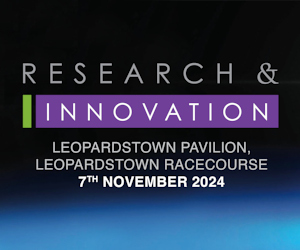Impact of Brexit on Ireland’s Life Sciences Sector

The impact of Brexit on Ireland’s vibrant life sciences sector and the need to mitigate those risks through Irish-Welsh collaboration were the subjects of debate by manufactures, researchers, regulators and policymakers at the recent British Irish Chamber of Commerce seminar in Cork, sponsored by KPMG and Ulster Bank.
In his keynote address, the Lord Mayor of Cork Cllr Mick Finn outlined the growing importance of the life science sector to the Cork economy and the need to protect the city’s status as an innovation hub post-Brexit. He said: “Cork is a small city with a big international reach and our links with Britain are so crucial across many sectors and platforms, including the broad gamut of life sciences. When you are talking about trade values of €1.2bn per week between Ireland and the UK, the magnitude of potential Brexit impact on Ireland is clear. Cork has become a world leader in pharma, bio-pharma, healthcare and research and this has not been won lightly, so events such as this are essential in ensuring we in Cork, indeed Ireland, can put in place the best possible defences against the various types of Brexit fallout that are being contemplated.”
The Lord Mayor’s address was followed by panel discussions focusing on the regulatory and market access impact of Brexit on the sector and the importance of continued UK-Ireland research collaboration in overcoming the challenges that face the life sciences sector in 2019 and beyond.
Dr Paul Galvin, Head of ICT for Health Strategic Programmes and Head of Life Sciences Interface Group, Tyndall National Institute, UCC, said: “The collaboration between SMEs and academic groups in Ireland and Wales which has been enabled through the CALIN project, is providing the basis for long-term cross border relationships among key stakeholders across Life Sciences value chains. CALIN is also building a sustainable innovation ecosystem combining Irish and Welsh leaders in fundamental and applied research related to Life Sciences, with SMEs, MNC and end users. This ABC (Academic, Business and Customer) ecosystem approach is a great template for future Ireland – Wales partnership programmes.”
In his address, Liam Cullen, Chair of the British Irish Chamber of Commerce Life Sciences Committee, said: “The UK’s impending departure from the EU will result in significant change and uncertainty for Ireland’s life sciences sector. From research collaborations, product development, and the ability of companies to export unhindered to the UK, there will be significant changes to the way we go about our business following Brexit. Today’s gathering provides an important opportunity to outline the main concerns of researchers and manufacturers in the life science sectors regarding transition phase and the need to prepare for all Brexit eventualities.”







